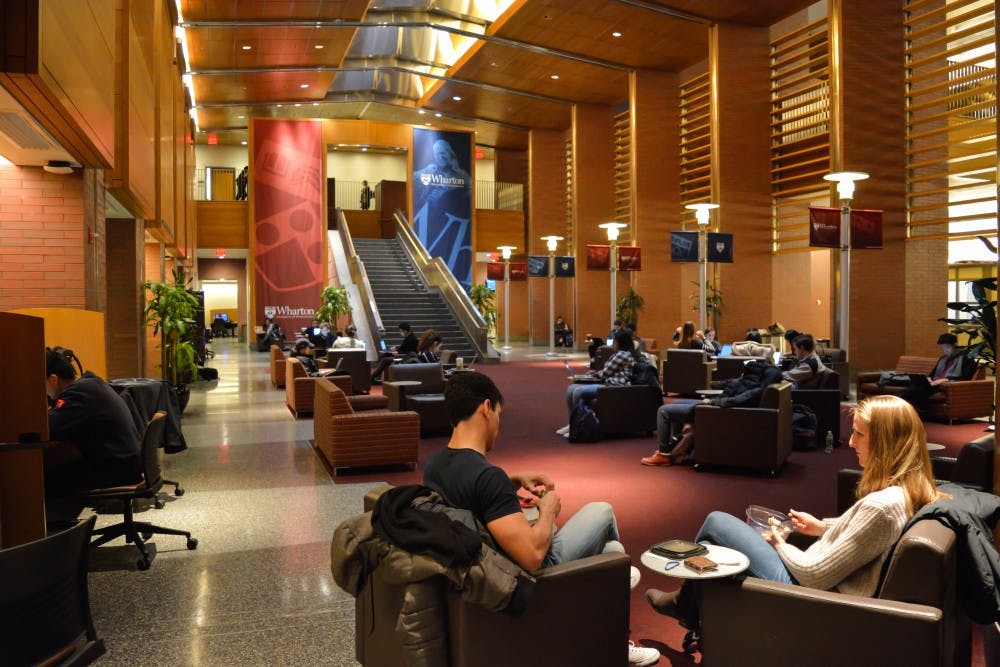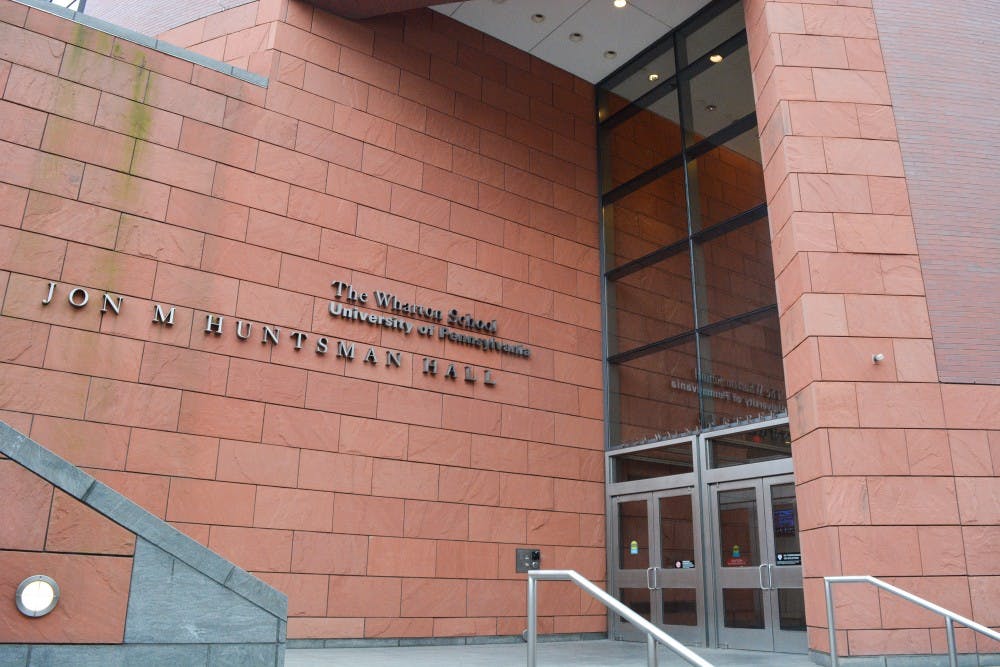
The application deadline has officially passed for the new Moelis Advance Access Program, which allows Penn seniors to apply for an advance spot in the Wharton MBA program before they graduate. The program allows students to take two to four years off to work while maintaining a guaranteed spot in the MBA program when they return — similar to a program offered by Harvard Business School.
This year’s applicants will be the first Penn students to participate in the program, which was established in 2017 through a $10 million donation from 1980 Wharton graduate and 1981 Wharton MBA graduate Ken Moelis and 1981 Wharton graduate Julie Taffet Moelis.
Associate Director of MBA Admissions Danielle DeShields said in an emailed statement to The Daily Pennsylvanian that students from “a plethora of backgrounds” have shown interest in applying, including Middle Eastern Studies majors, bioengineers, and students joining Teach for America this summer.
“By encouraging students across all Penn undergraduate schools to apply [...] we will be able to expand the traditional notion of the Wharton MBA applicant and increase diversity for our future MBA classes,” DeShields said in the statement.
Harvard Business School has a similar program to Moelis – the 2+2 Program, which launched ten years ago. Unlike Moelis, Harvard's 2+2 is open to undergraduate seniors at any university, not just Harvard.
DeShields said in a phone interview that while the possibility of expanding Moelis to non-Penn college seniors exists, "we think it's really great to start at home first." DeShields added that the Moelis family, whose donation made the program possible, has a commitment to Penn.

Ken Moelis, the investment banker behind the international investing firm Moelis & Company, submatriculated into the MBA program at Penn, graduating with two Wharton degrees in 1981.
Since Harvard launched the 2+2 program, it has grown more competitive – its acceptance rate in 2008 was 17 per cent while its acceptance rate for the Class of 2020, who will matriculate in the fall, was 11 per cent.
The increase is consistent with a wider trend – applications for top-10 MBA programs, which includes Wharton and Harvard Business School, increased by 26.9 per cent between 2006 and 2016, according to data from US News and World Report.
DeShields said that establishing Moelis wasn't part of a wider trend, but something Wharton has wanted to do for a while, as the program is "a great way to retain talent at Penn."
"The MBA is always going to be a popular choice," DeShields said.
The number of Penn seniors who have applied to the Moelis program is not publicly available, according to Wharton's Director of Media Relations Peter Winicov. DeShields said that there is no target size for the first class of Moelis fellows, "since we don't have any benchmark." DeShields said the program will review all its applicants and determine class size from there.
While applicants from the Class of 2018 are still waiting to hear back from the program, some Penn juniors are already preparing to apply next spring.
College and Wharton junior Anna Schmitt said she will study for the GMAT over the summer in preparation for applying to Moelis. She added that although she is still unsure if she wants to earn an MBA, the Moelis program appeals to her because of the deferred enrollment opportunity that it gives students.
“There’s security in the sense that I can really pursue my passions [before earning an MBA],” Schmitt said.
Engineering junior Ria Nagar said she will be applying to Moelis next year because it would allow her to “gain experience” in the workforce and “guarantee that you’ll have a good place to go” afterwards.
“I think an MBA is more valuable after you’ve worked,” Nagar said, adding that the two to four year deferral length the program allows is “the perfect length”.
According to the program’s website, admitted students will have access to “exclusive” Wharton resources –which includes professional mentoring, yearly retreats, and quarterly “social and professional development events” for its fellows.
After matriculating into the MBA program, accepted students will be reviewed for additional financial aid, on top of a $20,000 fellowship that each student will receive over the two-year degree.
The first Moelis fellows will matriculate into the Wharton MBA program in August 2020, and the last of the students admitted this spring will begin their MBAs in August 2022. Decisions will be released in May.
The Daily Pennsylvanian is an independent, student-run newspaper. Please consider making a donation to support the coverage that shapes the University. Your generosity ensures a future of strong journalism at Penn.
Donate






